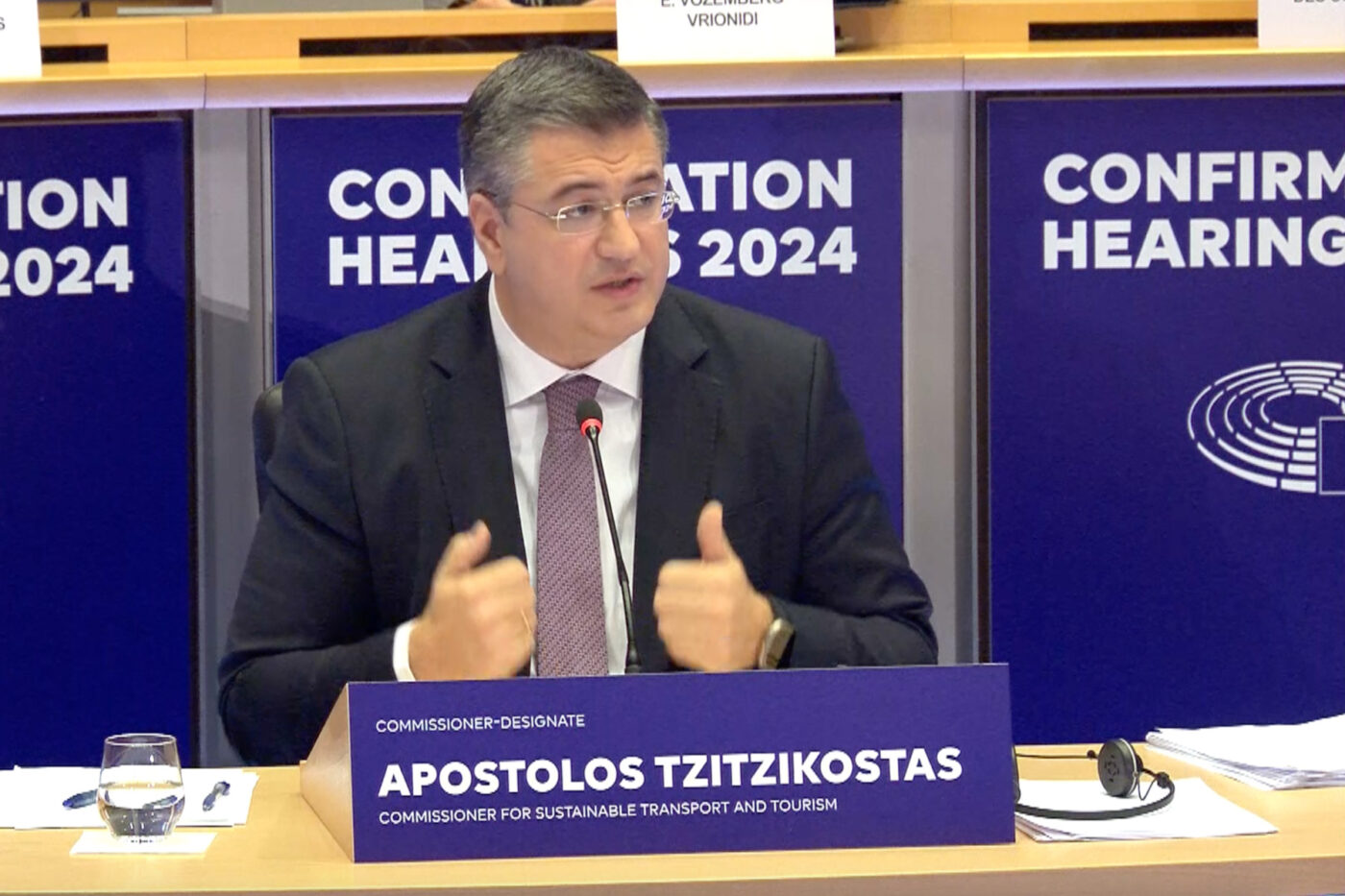New EU transport commissioner wants to stick to ICE phase-out
According to Tzitzikostas, he wants to stick to the EU’s plan to ban new registrations of fossil-fuelled combustion cars from 2035: “We have specific rules and goals that we want … and we have to stick to the plan. Otherwise, the message the European Union will convey … is not a message of stability and trust,” Politico quotes the Greek politician. The news portal reported on the hearing before the Transport Committee, which lasted several hours, in a live ticker. The designated Transport Commissioner also does not want to soften the CO2 fleet targets for 2025.
Tzitzikostas belongs to the political conservatives, who are organised in the European People’s Party (EPP) at the EU level. Commission President Ursula von der Leyen is also a member of the EPP. In her first term of office, von der Leyen drew up the ‘Green Deal,’ which includes, among other things, the so-called ‘combustion engine phase-out.’ From 2035, only cars that do not emit CO2 may be registered in the EU. That means combustion engines are not directly banned but de facto prohibited. To secure a majority for a second term in office, von der Leyen had called for an exemption for combustion engines that are demonstrably only fuelled and operated with e-fuels – such vehicles can also be newly registered after 2035.
The designated Transport Commissioner shares that opinion. He wants to include synthetic fuels in the legislation in the upcoming review in 2026. Before the 2024 European elections, parts of the EPP and other parties had spoken out in favour of lifting the ‘combustion engine ban’ to protect the industry. When asked by his EPP colleague Jens Gieseke, the Greek MEP stated that the Union must “stick to the plan” regarding CO2 emission targets. Despite the political attacks on the 2035 ban, Tzitzikostas insisted that the EU’s Green Deal was not responsible for the car manufacturers’ problems.
To drive solutions for the decarbonisation of transport, he announced that he would present an investment plan for sustainable transport in 2025. However, there are no details on this yet; sustainable transport will also affect other modes of transport, such as rail. Tzitzikostas does not want to lose sight of road transport and announced that the EU must help car manufacturers switch to electric vehicles. Only the how is still unclear. However, his clear stance on CO2 emissions provides an important framework.
One area in which the future Commission could support electric mobility is probably company fleets. When explicitly asked by the committee whether he would commit to prescribing binding targets for electric fleets by law, Tzitzikostas agreed to support such an initiative after some hesitation, according to Politico. Company fleets account for around half of all new registrations across the EU and are, therefore, a major lever for getting electric cars on the road. As these vehicles are usually leased, they could be available as used cars after a few years, according to the politician. “I can’t say if it would be done by incentives or taxation, but I can’t exclude legislative action,” he said of his plans to promote electrification of corporate fleets.
Even though he remained vague on some points, Tzitzikostas apparently convinced the members of the Transport Committee at the hearing. Around two hours after the end of the hearing, the EPP Group announced on X that the Transport Committee had approved the personnel matter. Many committee members told Euractiv that he “was well prepared and knew his topic quite well” but was “weak on climate in general.”
However, the lack of detail was not only criticised by the committee members. “Commissioner-designate Tzitzikostas talked a good game about cleaning up Europe’s top polluter, transport,” said William Todts, executive director of T&E. “He showed commitment to e-mobility, scaling clean fuels for aviation and shipping, and solving rail ticketing. But he said very little about what exactly he would do when appointed Commissioner. His repeated refusal to commit to a much anticipated EU law to electrify corporate car fleets was bewildering.”
politico.eu, euractiv.com, transportenvironment.org, europarl.europa.eu (Video)





0 Comments